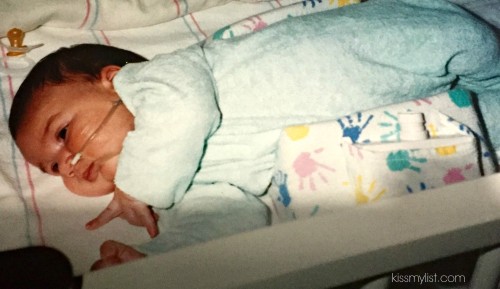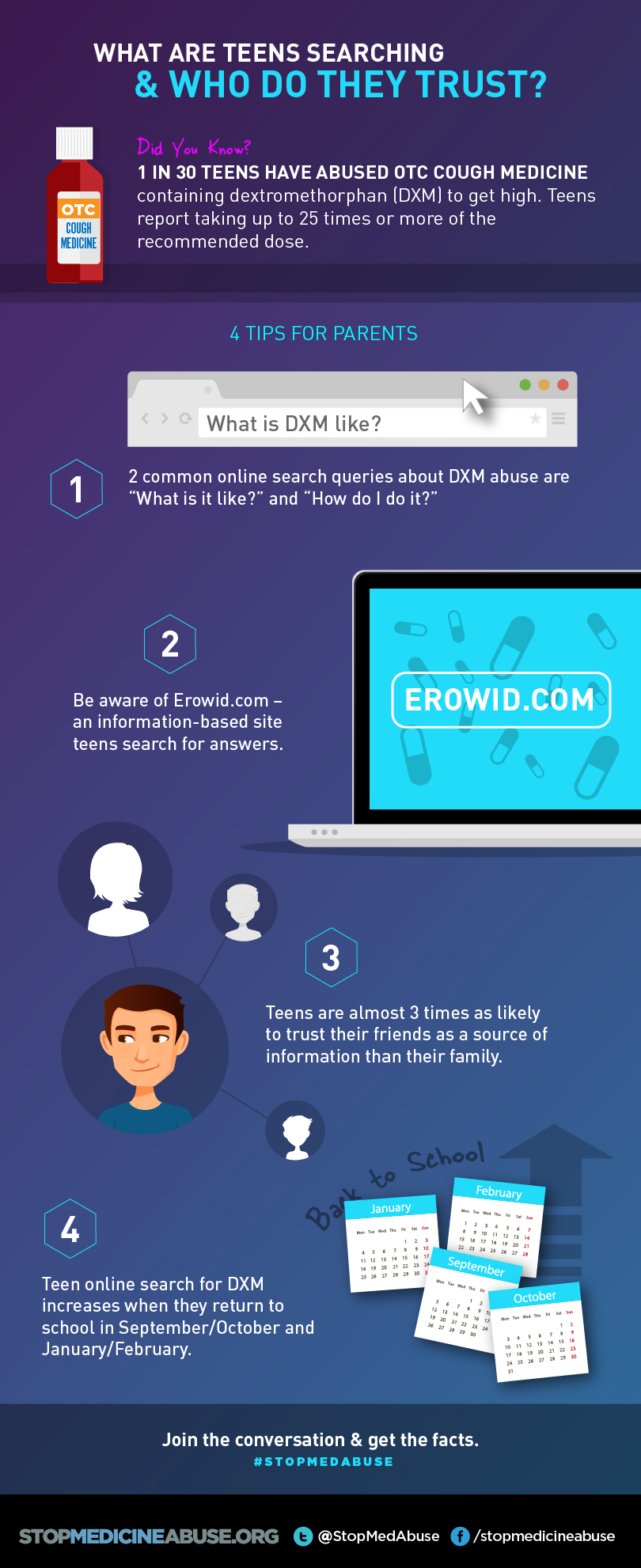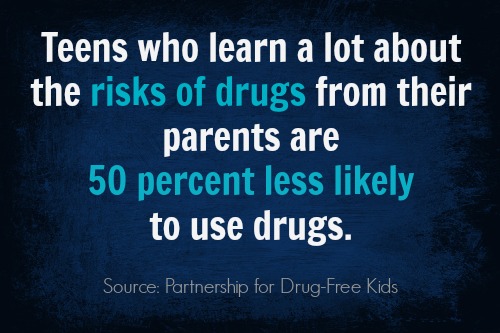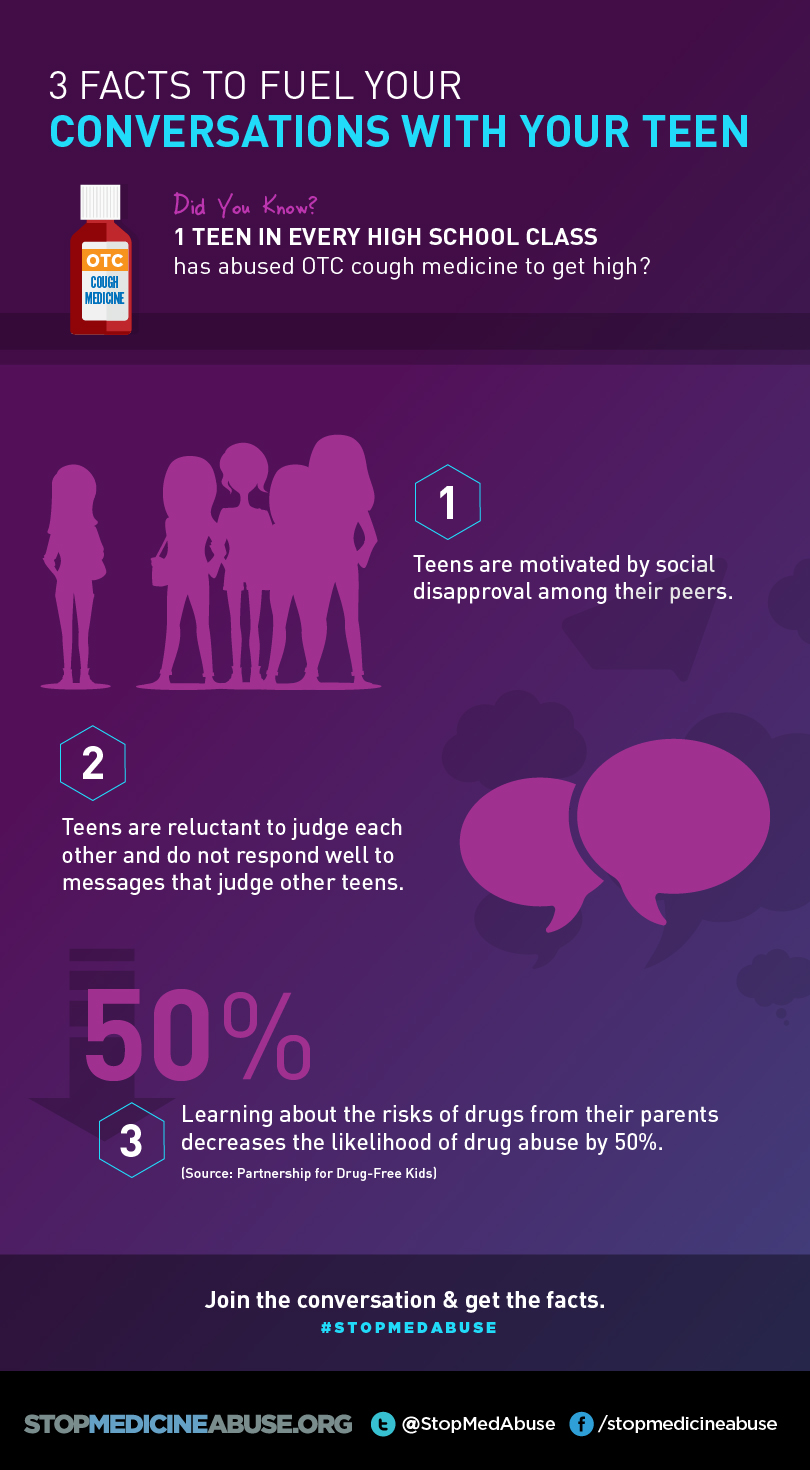In the first weeks of my son’s life, we had a frightening experience with incorrect medication dosage. That baby boy is now a healthy fourteen-year-old who remembers nothing about that time, but I will never forget it.

October is National Medicine Abuse Awareness Month, and EVERY parent needs to be aware. and Cuddly babies and rambunctious toddlers will grow into adolescents; I can’t imagine that any parent of a teenager who abuses drugs imagined that future for their kindergartener.
Potential drug and alcohol abuse top my list of fears as the mother of two teenagers, but I feel less scared when I feel educated and informed. Fortunately, there are many resources available for parents and teens. Specifically, the Consumer Healthcare Products Association (CHPA) runs a Stop Medicine Abuse program targeting parents and community leaders, so that they can spot and prevent teens’ abuse of cough medicine.
Yes, cough medicine.
One in thirty teens reports abusing cough medicine to get high, and one in three teens in high school knows someone who has abused the drug. In addition to the parent program, the CHPA also runs a teen-specific program called WhatIsDXM.com.
So what is DXM?
![]() DXM is an ingredient found in most OTC cough medicines, and is probably in your medicine cabinet. Taken in excessive doses, DXM has intoxicating, dissociative, and psychoactive properties.
DXM is an ingredient found in most OTC cough medicines, and is probably in your medicine cabinet. Taken in excessive doses, DXM has intoxicating, dissociative, and psychoactive properties.
It should come as no surprise that when teens take up to 25 times or more of the recommended dose of cough medicine to get high, side effects range from nausea and vomiting to death.
The CHPA shared their insights from several years’ worth of research at a web forum called “Inside the Teen Brain: Is there an App for that?” I attended this forum with the intent to learn what I can do to protect my kids.
If you have a kid you want to keep safe, keep reading.
What do you need to know to stop medicine abuse?
![]() A leading motivator in preventing teens from DXM abuse is fear of social consequences, and the perceived risks of abuse (vomiting and lack of control) lead to social disapproval.
A leading motivator in preventing teens from DXM abuse is fear of social consequences, and the perceived risks of abuse (vomiting and lack of control) lead to social disapproval.
The more teens understand the risks of abuse, the more abusers will experience peer disapproval, and they will be less likely to abuse.
![]() Teens are reluctant to judge each other, and resist media messages that judge or criticize other teens.
Teens are reluctant to judge each other, and resist media messages that judge or criticize other teens.
They will judge the behavior and its consequences, not the user.
![]() Teens are almost three times as likely to trust their friends as an information source than their family.
Teens are almost three times as likely to trust their friends as an information source than their family.
But parents are still vitally important. Know where your kids are getting their information.
Who abuses DXM?
The specific target audience for prevention is teens between 14 and 19 who have considered using DXM but haven’t tried it. They are more likely to be male than female.
These are the fence sitters. They are curious, perhaps because they have a friend who has tried it or heard about it. They look for information online.

So what can parents do?
![]() Visit sites like StopMedicineAbuse.org and PreventRxAbuse.org. Learn the basics, warning signs, slang terms, and the online influences that make teens vulnerable.
Visit sites like StopMedicineAbuse.org and PreventRxAbuse.org. Learn the basics, warning signs, slang terms, and the online influences that make teens vulnerable.
Be involved and engaged with your teens, and empower them to make good decisions.
How do I do that?
Have conversations. Have them in the car, while you having dinner, or while your teen is chilling on the couch. In these situations, the discussion can be natural, not a lecture.

It’s all about presentation. If you make the educational message inviting and entertaining, they will pay attention.
When a teen searches “what is DXM” online, they find the CHPA site WhatisDXM.com. This sites grabs their attention, using games, apps, and bait and switch videos to interrupt teens’ searches and change their perceptions. This campaign uses the negative perception of DXM abuse and fear of social disapproval to make the drug undesirable.
It’s never too soon to educate yourself about the realities our teenagers face; even parents of toddlers will be parents of teenagers one day. And while teens look to their peers for information, so do parents. Be a resource for other parents, and create a community of support.

The good news
Remember those fence sitters? They are the target audience for prevention, and they have been exposed to the digital campaign 525 million times since 2012.
Teens have directly engaged with the campaign’s online content 21 million times, and visited the website one million times.
This campaign is making a difference. Parents are making a difference.
Even if you’ve skimmed all the facts and figures, stop here.
Raising parental awareness is vital. Simply knowing that OTC and DXM abuse exist arms parents with the first tool of prevention. We can all help raise awareness. You can:
- Pin one or both of the infographics in this post, and follow the CHPA Pinterest board.
- Follow @StopMedAbuse and on Twitter or on Facebook. Tweet this post and use the hashtag #StopMedAbuse.
- Visit StopMedicineAbuse.org, bookmark the site, and share with other parents.
- TALK TO YOUR KIDS. It’s never too early; don’t let it be too late.
This blog post is sponsored by the CHPA’s Stop Medicine Abuse educational program. I was compensated to attend the event but all opinions here are my own.

Meds are so so scary. Seriously. I’m not going to tell you all the stories running through my head right now because then those stories will be running through yours… agah.
I appreciate that, Kristi. <3
What a great way to raise awareness! I’m amazed by the things kids find to give themselves a high…
It’s crazy, isn’t it? Crazier still are the websites that encourage and teach kids how to abuse DXM.
Yikes, how scary. I hadn’t heard of this even when I was in high school. I think like you said, good parental and family influence is key. I am all about raising kids who listen to their parents before their kids because of scary issues like this! Thanks for raising awareness.
My kids hadn’t heard of it either, but they need to know too. And they know that they can ask their dad and me questions – info from their peers isn’t always to be trusted.
My son got a bottle of gummy vitamins in his stocking for Christmas one year. At the tender age of three he opened the “child-proof” lid and ate them ALL! Thankfully there were no dangers, and we had a long talk about it. We’ve kept that door open for other medicine conversations since then too. My oldest still asks permission before taking one Advil or her nightly allergy medicine, so I have hope that we can keep having these conversations into the future.
Having conversations is so smart, Rabia – it’s a way to keep that door open, as you said.
Oh my goodness…25 times the recommended dosage?! That’s insane! This stuff scares the bejeezus out of me. And though we’re not in the target audience, I read closely just so I can be prepared for when the time does come!
I’m glad you read it, Leslie. Just knowing the dangers exist is enough for now, and you’ll be prepared to stay vigilant when your kids get older.
Oh my. Scary. But an important read for sure. Thank you for sharing.
Thanks for taking the time to read, Amber. The more parents who know about the dangers, the safer our kids are.
Oh, I had an accidental overdose when the twins were infants. I was so tired – and I will never forget that call to poison control. I’ve always been wary of OTC meds – I used to take a lot of cold medicine when I was younger (and wouldn’t “rest”) and Echinacea and had a horrible reaction that I attributed to combining too many OTCs. Thank you for the reminders, advice and resources. Great post Dana.
Thanks, Allie!
Wow, incredible post my friend. I am sharing with our town Substance Abuse group. Having kids is scary enough without all the added fears of abuse
Thank you for sharing, Kerri!
This is such a great post idea! We try to protect our kids from so much, when there are some dangers lurking in our house that could hurt them so terribly!
I know – it’s so scary!
So terrifying. And I’ve seen Des get way too much medicine for his small body.
This is NOT funny but my mom said that in college, they called it Roba-dosing. Which means taking cough and other syrups for FUN. I can’t even imagine. It’s horrifying.
They still call it that, along with many other slang terms. And the dangerous websites out there for our kids to access…so scary. I think it’s brilliant that there is a truthful and informative site (whatisdxm.com) that comes up in searches, so that teens can get the real information.
Important, important stuff, Dana. Off to share.
Thank you so much, Kelly!
Thank you for the information, Dana and I know I have a few years still yet with my girls, but still opening the lines of communication as they are getting older with stuff like this, I am hoping that I can keep them from doing anything like this that could potentially harm themselves. So, truly appreciate you sharing even more than words can say.
It is so important to be informed, Janine – you’re smart to keep those lines of communication open!
::Shudder:: This is definitely something I fear as a parent when Eve gets older. It’s important to educate before it gets to this point. Thanks for sharing, Dana. And my goodness, what a scary start to your son’s life. That must have been absolutely terrifying.
It was, but fortunately he doesn’t remember a thing!